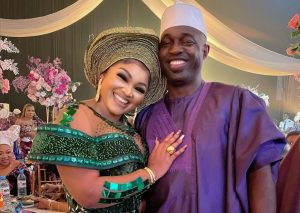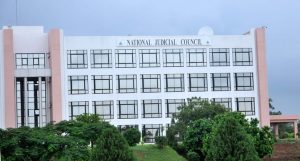A trail of ‘bloody gold’ leads to Venezuela’s government

Fifty meters underground, the air is hotter than at the surface. The humidity is overwhelming and you can smell the stench of the dozens of men who have already spent half their day down here, inside one of hundreds of gold mines deep in the jungle in southern Venezuela.Venezuela boasts the largest oil reserves in the world, but gold is increasingly its lifeblood. In the area around the mines, gold has replaced the near-worthless bolivar, with even the cost of a haircut quoted in gold. In Caracas, it allows Maduro to allegedly buy the military’s loyalty to his embattled government. And abroad, Venezuelan gold is sold by the ton — one of the country’s few remaining means of foreign exchange.To extract the precious metal, these men must turn rocks into dust, from sunrise to sunset, under the brutal rule of a state-sponsored network of violent gangs and corrupt military, say several witnesses and a senior military source with knowledge of the security situation in the Orinoco Mining Arc.”Just like the blood diamonds [in Africa], the gold that is being extracted from Venezuela, outside of any protocol, is bloody gold,” Gen. Manuel Cristopher Figuera, the former head of Venezuela’s intelligence service, told us. Welcome to the Orinoco Mining ArcRojas moved here three years ago, when oil prices hit a 12-year-low. Such drops in oil prices, compounded by years of mismanagement and corruption, were already pushing Venezuela’s state-run oil industry to near-collapse — and the national economy along with it. Progressive US sanctions have tightened the vice, forcing the government to find alternative sources of revenue.In November 2018, embattled president Nicolas Maduro announced a “Gold Plan” that would allow Venezuela to profit an estimated $5 billion dollars annually, starting in 2019. “Gold will strengthen our international reserves and it will strengthen the national finances,” he said, claiming that his government had been negotiating with foreign investors to sell the valuable mineral. “Welcome to the Orinoco Mining Arc and the Gold Plan, all investors worldwide,” he said. Most of the country’s gold reserves are thought to lie in Orinoco Mining Arc, Bolivar state. It is a vast stretch of land, most of it jungle, that spans more than 40,000 square miles from Guyana to Colombia.The three hour drive from the airport in Puerto Ordaz to the city of El Callao, considered locally as the mining industry’s capital, is incredibly scenic, with lush terrain as far as the eye can see. Food and fuel sellers dot the journey, usually near small towns lost in the wilderness. The further into the jungle, the more expensive these goods get. The road is surprisingly well paved — an indication of how well traveled it is — but not without its perils.El Callao is the most violent municipality in Venezuela, according to the Venezuelan Observatory of Violence (VOV). The Roscio municipality, less than ten miles north in the town of Guasipati, came second. The reasons for the violence are many but they all begin with mining, which has attracted “armed groups, the presence of so called ‘syndicates’, coupled with the lethal and violent actions of police and military operatives in the area,” VOV said in its 2018 annual report. We pass thirteen police checkpoints on the way in. It doesn’t matter what we bring in — it’s what comes out that these men are looking for.In 2016, the government named Orinoco a “strategic development zone”, which would facilitate the establishment of mining operations and allow it to receive special funding. It also bypassed local authorities and the opposition-controlled National Assembly, centralizing control in the country’s Mining Ministry in Caracas, right under Nicolas Maduro. The move would boost Venezuela’s economy by compensating for the fall in oil revenue, the government said.But the US says that some gold profits are just going into private pockets. Maduro, members of his family and his regime have been using this legal framework to direct illegal mining operations in the region, granting the Venezuelan military “liberal access” to mines in order to buy their “staunch loyalty”, the US Department of Treasury said in March as it imposed sanctions on Venezuela’s mining industry.Support from the military is the main reason Maduro has been able to remain in power. From Caracas to El Callao, there is little apparent interest from the armed forces in any type of change. “Maintaining the same leadership is a way of maintaining the same status quo,” a senior military source with direct knowledge of the security situation in the Mining Arc tells us.The Venezuelan government did not respond to CNN’s request for comment.Criminal gangs and corruptionAt the mine, Rojas shows us rocks with gold filaments, which must be extracted. “We take these rocks to the mill and there they are processed,” explains another miner, Angel Coro, 48, a six-year veteran at the same mine. “The mills extract 40% of the gold from the rock,” he says. “The other 60% stays in the crushed sand, which they sell to companies like (state-owned mining company) Minerven or other companies operating in the area, which process the sand with cyanide and other chemicals.” “In some areas you can get 100, 150 grams of gold, every day,” Coro tells us back at the mine, reminiscing about another area he had worked in. That’s more than $6,000 worth of gold in just one day. The average salary in Venezuela is the equivalent of $6 per month. Most of these miners had other jobs before the collapse of Venezuela’s economy. Some were mechanics, some were farmers and the list goes on. Now, they’re doing better than the average Venezuelan, but they’re far from getting rich. Miners must pay the mills to process the gold and then there are other, less transparent costs. When we ask who else they have to pay, they refuse to go into detail. One miner is willing to say more, under condition of anonymity. We meet him in El Callao early in the morning, when most of his fellow miners are still asleep. His body is stiff, his hands are shaking and his voice is low — he is nervous. He could be killed for speaking to us. He’s been working in the mines for five years, and explains that the area is run by criminal gangs called pranes, groups composed mostly of young men who battle each other for control of territory and charge the miners for everything they extract. Some groups charge a percentage ranging from 30% to 50%, others charge a flat rate, regardless of how much or how little the miners are able to dig out. “You are forced to pay because if you don’t there is a consequence,” the anonymous miner explains, detailing the atrocities he witnessed. “They’ll cut you, torture you, and those who speak out are also mutilated, tortured, killed and thrown down the mining holes.” He’s seen colleagues mutilated, their hands and arms cut, their eyes plucked out for failing to pay these armed groups their share. Others simply go missing. “I’ve seen them kill people in the mines, sometimes 10 or 15 people at once,” he says. According to him, they are permitted to run rampant as corrupt police and military officials collect their own payment.His allegations are confirmed by a senior military source who has direct knowledge of the security situation inside Venezuela’s mining arc. Unlike the anonymous miner, he doesn’t look nervous, though he too requests anonymity. The TV inside the café where we meet him is showing old movies and the volume is near maximum. It’s so loud we have to lean in to listen to him — perhaps what he intended.”In order to survive in that territory, you need to carry a weapon,” the anonymous military source says, adding that the pranes members carry heavy weapons bought or stolen from the military. “This didn’t use to happen in Venezuela,” he says.There are other well-trained outlaw militias in the region, too. “You can spot them a mile away,” he says. “Their posture, their behavior is different. They are combat trained.”Gold oils the relationships between criminal groups and the soldiers who are supposed to uphold the law. “I’ve been offered gold many times,” our source says. “Every time we stopped a truck for a check, for not having the right paperwork someone would make me an offer to try to get me to look the other way”.”Sometimes I did,” he adds. The military and Maduro’s familyMembers of the military are themselves invested in the dozen or so companies that refine gold from sand, the anonymous miner and military source both tell CNN. The resulting network of relationships between private industry and public officials leads to Caracas, where Maduro and his government exert direct control over both mining operations and the military.”Everything, directly or indirectly, goes to the government,” says one gold trader in El Callao, on condition of anonymity. “The environment is completely controlled by the government.” Our anonymous military source says that high-ranking Venezuelan military officials take advantage of their rank to seize huge swaths of land, and then partner with investors who bring the knowledge and capital to run an industrial mining operation. These companies are able to operate freely in this turbulent region because of their connections to the top, he adds, and their operations legitimize criminal gangs’ exploitation of thousands of miners at the bottom. Letting officials profit from the gold business has allowed Maduro to “corrupt public servants and military officials in all power structures in order to perpetuate his rule,” says Cristopher Figuera, one of President Maduro’s most trusted generals before joining the opposition movement. He describes a “society of accomplices” in the gold industry, enriching themselves at the expense of the Venezuelan people, including the miners working around El Callao. According to Cristopher Figuera, Maduro’s own family has also profited from the gold. “There are companies linked to Maduro’s family circle that buy the gold or negotiate the extraction of the gold in the south of the country,” Cristopher Figuera claims. “They sell one part to the central bank and the other part they take out of the country without any kind of control,” he says.The US has also accused the embattled president and members of his family of personally profiting from mining operations, though the sanctions do not mention the Orinoco Mining Arc specifically.A former fixture in Maduro’s inner circle, Cristopher Figuera’s own reputation is not unsullied. He took charge of the Venezuelan National Intelligence Service known as SEBIN, at the end of 2018, and was later sanctioned by the US Department of the Treasury for overseeing “mass torture, mass human rights violations, and mass persecution against those who want democratic change in Venezuela.”He denies the charges and the sanctions were lifted after he turned on Maduro’s government.From the jungle to the city, from Caracas to the worldVenezuela’s gold trail leads all the way up from the jungle to Venezuela’s Central Bank. Surrounded by government buildings, it is here where the country’s golden fortune has been amassed. According to a source inside the bank, around 70 tonnes of the valuable mineral remain inside its coffers, the lowest amount in decades. The Central Bank did not respond to a request for comment.Forced to provide some relief for a population starving under a crumbling economy, crippled further by US sanctions, which have made trade increasingly difficult, Maduro saw in gold the commodity that oil could no longer be: Increasingly prized, historically stable in value and considerably easier to ship around the world. Gold would allow the regime to suppress some of the country’s needs while allegedly enriching Maduro and winning the military’s favor. In 2018, Venezuela sold almost 24 tonnes of “unrefined” gold valued at more than $900 million dollars to Turkey, data from the Turkish Statistical Institute shows. It was exchanged for supplies later included in government subsidized food boxes for poor Venezuelans. However, the US government has said the Venezuelan government is skimming its own profits from such food imports and distribution.The Turkish government did not respond to CNN’s request for comment.Official exports of gold to Turkey seemed to end in early 2019, following an Executive Order issued by US President Donald Trump in November 2018 authorizing new sanctions on Venezuela’s gold sector. A few days later, speaking on Venezuelan National TV, Maduro accused the US of “persecuting the Venezuelan gold,” vowing Venezuela would continue to “produce and sell gold.Today, trade continues, according to Cristopher Figuera and a senior source at the Venezuelan central bank. According to the bank source, up to 26 tonnes of gold were taken out of the bank until the end of April. They were packed into planes and shipped to the Middle East and Africa, the source says.One of those shipments was sent to Abu Dhabi-based Noor Capital, who days later admitted it had purchased three tonnes of gold from the Venezuelan central bank for an undisclosed amount. “Clear commercial contracts regulated the relationship between Venezuela’s Central Bank and Noor Capital,” the company said in a statement in February. “Until the situation in Venezuela stabilizes, Noor Capital will refrain from any further transactions.” In March, a Russian cargo plane made two trips from Caracas to Entebbe, Uganda. On board it carried a total of 7.4 tonnes of gold, worth more than 200 million dollars, purchased by the Africa Gold Refinery (AGR), the spokesman for Uganda’s police and a source at AGR told CNN. After intelligence received by Uganda suggested the cargo had been smuggled into Uganda illegally, local authorities launched an investigation and seized a portion of the gold. But the allegations were dismissed by Uganda’s Attorney General, William Byahuranga, who instructed police to “withdraw officers deployed to AGR premises and release any gold that may have been seized or impounded during this investigation,” according to a letter obtained by CNN.Byahuranga also instructed AGR to “cease and desist from any further importation of gold from Venezuela, until further notice.”The gold was processed at AGR and later re-shipped to Abu Dhabi, skirting US sanctions on the Venezuelan gold sector, according to the sources. In response to CNN’s requests for comment, a UAE government spokesperson told CNN that the country is “fully compliant” with international law, and had not received an “official request” to investigate any violations.The trail of gold shipments has grown cold in recent months as the United States and its allies have increased the pressure on Venezuela and its gold exports. But multiple sources tell CNN that Nicolas Maduro and his inner circle are still selling the gold where they can. “They have countries or companies in other countries that allow them to make some profit through gold, or work with different currencies, sell the gold in currencies other than the dollar,” Gen. Cristopher Figuera says.As the road that allowed gold to leave Venezuela through Caracas grows narrower and narrower, Venezuela’s porous border with Brazil and Colombia has become the main avenue through which the gold leaves the country.”We have a border, which is not under any sort of control and which is very large as well,” Cristopher Figuera explains. “The ones who smuggle gold have been able [to take] advantage of those vulnerabilities.” These allegations have been confirmed by our military source, a source in the gold trade with direct knowledge of operations involving gold from Venezuela, and multiple witnesses in the region. A Venezuelan “Wild West”Back at the cafe, angered by the long-lasting impact the mining industry is having on the environment and on the people living in the area, our anonymous military source lashes out. “What irritates me is these people, the ones who have profited, have created these issues and then they leave.”It’s not just the corruption and the violence that have spread throughout the region that aggravate him. This part of Venezuela has become a sort of Wild West, where the lines between what is legal and illegal mining have become increasingly blurry. Most mining sites operate in illegal conditions, with little regard for health and safety norms and a complete disregard for their environmental impact, while local officials and security forces turn a blind eye.Companies operating in the Orinoco Mining Arc do so with outdated technology and practices using dangerous chemicals, poisoning vital water resources with mercury, cyanide and others toxic substances. The mining operations also continue to clear huge areas of rainforest, some of it protected under Venezuelan law, such as the Canaima National Park, a UNESCO heritage site.”I haven’t seen much of the world, but the Canaima National Park is,” he says, pausing as he searches for the right word. “It’s just spectacular,” the military source says with a sigh. “And they are destroying it.”Back in El Callao, the miner we spoke with and whose identity we’ve agreed not to reveal tells us he believes the gold he’s been digging out was divinely created — but necessarily good.”It is on the ground because God deemed it so,” he says. “And there’s a biblical text that says your money is not to be used for evil deeds.” Reflecting on the corrupt system of self-gain around the gold, from El Callao all the way to Caracas, he despairs.”It’s cursed money,” he says. “It’s evil money.”CNN’s Gul Tuysuz, Sarah El Sirgany, and Samson Ntale contributed reporting.






